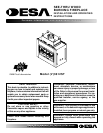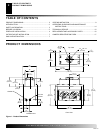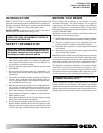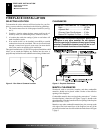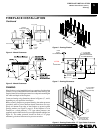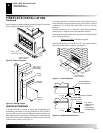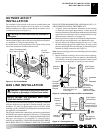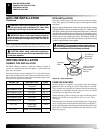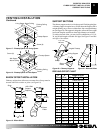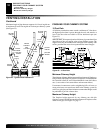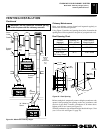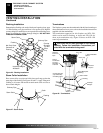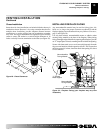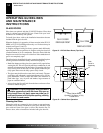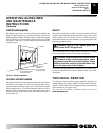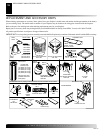Special offers from our partners!

Find Replacement BBQ Parts for 20,308 Models. Repair your BBQ today.
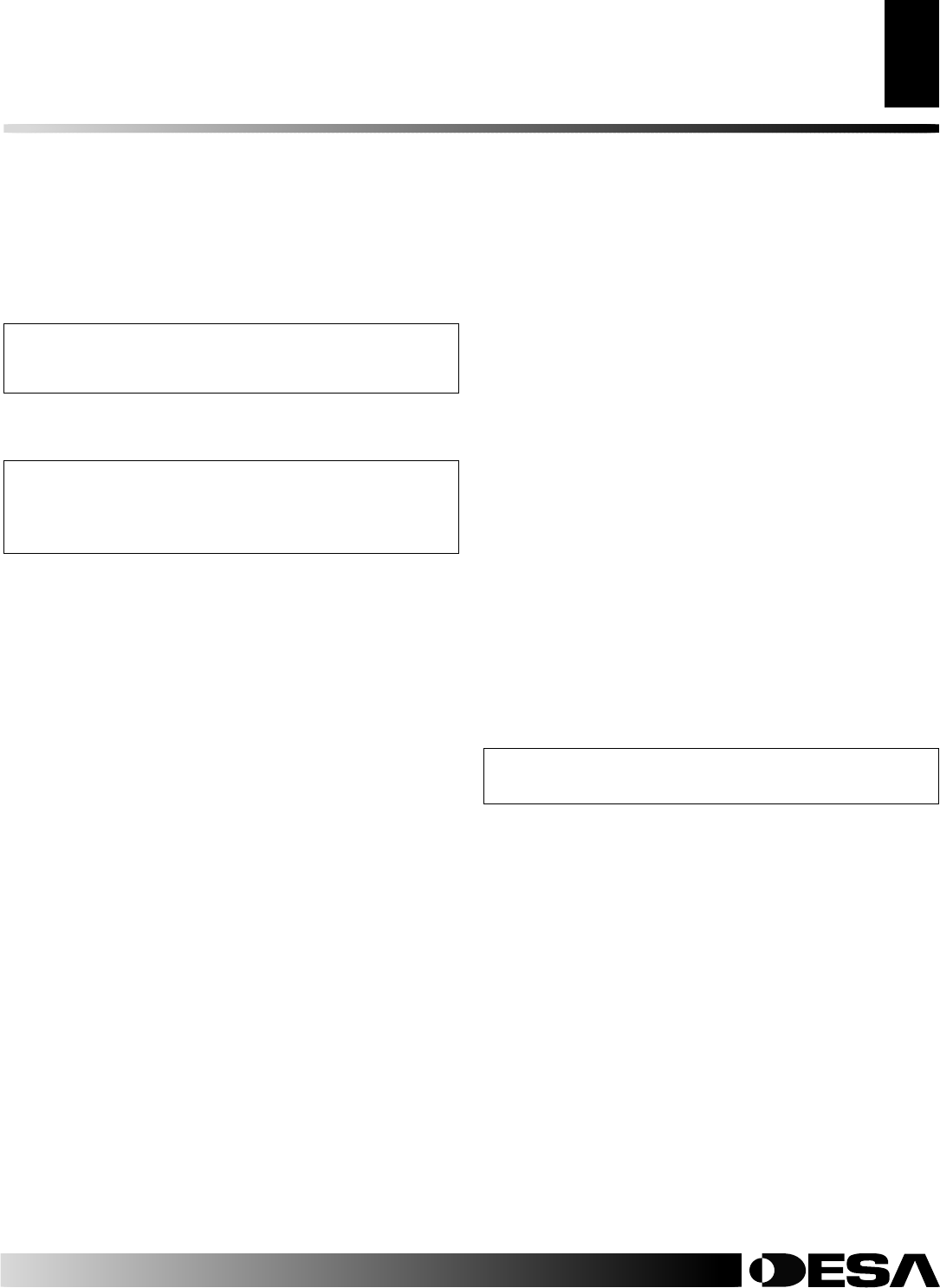
115603-01A
3
3
For more information, visit www.desatech.com
For more information, visit www.desatech.com
INTRODUCTION
SAFETY INFORMATION
BEFORE YOU BEGIN
INTRODUCTION
Model (V)3612ST series is a wood-burning fireplace intended and
approved for installation in either residential homes or buildings of
standard construction. This fireplace system requires the utilization
of a DESA 12" double wall, snap-lock flue pipe system.
GLASS DOORS are optional with this fireplace and come in
different styles. For further details (see page 14).
BE SURE TO CHECK WITH YOUR LOCAL BUILDING
CODES FOR AREA REQUIREMENTS BEFORE IN-
STALLING THIS FIREPLACE.
SAFETY INFORMATION
1. This fireplace reaches high temperatures. Keep children and
adults away from hot surfaces to avoid burns or clothing igni-
tion. Fireplace will remain hot for a time after shutdown. Al-
low surfaces to cool before touching.
2. Carefully supervise young children when they are in the room
with fireplace.
3. Do not modify this fireplace under any circumstances. Any
parts removed for servicing must be replaced prior to operat-
ing fireplace.
4. Let fireplace cool before servicing, repairing, or installing ac-
cessories. Only a qualified service person should install, ser-
vice, or repair this fireplace. Have fireplace inspected annu-
ally by a qualified service person.
5. Keep the area around your fireplace clear of combustible mate-
rials, gasoline, and other flammable vapor and liquids. Do not
operate fireplace where these are used or stored. Do not place
items such as clothing or decorations on or around fireplace.
6. Do not connect this fireplace to a chimney system other than a
DESA chimney system.
7. Due to high temperatures, do not locate this fireplace in high
traffic areas or near furniture and draperies.
8. Provide adequate clearances around air openings into the com-
bustion chamber. NEVER obstruct the front openings of the
fireplace or the flow of combustion and ventilation air. Install
in an area providing ventilation and adequate combustion air.
IMPORTANT: Read this owner’s manual carefully and
completely before trying to assemble, operate, or service
this fireplace. Improper use of this fireplace can cause
serious injury or death from burns, and fire.
BEFORE YOU BEGIN
Before beginning the installation of your fireplace, read these
instructions thoroughly. This DESA fireplace and its approved
components are safe when installed according to this installation
manual, and operated as recommended by DESA. Unless you use
DESA approved components tested for this fireplace, YOU MAY
CAUSE A FIRE HAZARD!
The DESA warranty will be voided by, and DESA disclaims any
responsibility for the following actions:
A) Modification of the fireplace or any of the components manufac-
tured by DESA unless otherwise permitted in writing by DESA.
B) The use of a fireplace insert or any component part not ap-
proved by DESA in combination with DESA fireplace.
C) Installation and/or operation in a manner other than instructed
in this manual.
D) The burning of any other fuel not tested or approved by DESA
in this wood burning fireplace.
PROPER INSTALLATION is the most important step in ensuring
a safe and continuous operation of this fireplace. Although ground-
ing may not be required by code in your area, it must be electrically
grounded in accordance with local codes or, in the absence of local
codes, with the National Electrical Code, ANSI/NFPA 70-1990.
This fireplace is intended for installation in accordance with the
National Fire Protection Association Standard for Chimneys, Fire-
places, Vents and Solid-Fuel Burning Fireplaces, NFPA 211, and in
accordance with codes such as the BOCA Basic /National Code, the
Standard Mechanical Code, and the Uniform Building Code.
THIS FIREPLACE IS NOT INTENDED TO BE USED AS
A PRIMARY SOURCE OF HEAT.
NOTE:
Installation and repair should be done by a qualified
installer familiar with the fireplace. The fireplace and chimney
system should be inspected and cleaned before use and periodically
thereafter especially during heating season to prevent the excessive
buildup of soot and creosote and to ensure a safe operating system.



